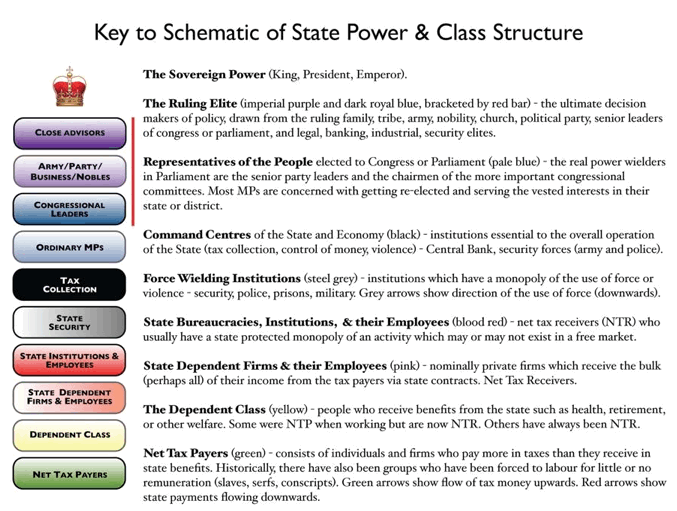Liberty Matters
Class and State
 As Lemke notes, it is difficult to craft constitutional arrangements in the face of differences in values and factional loyalties. Differences in values reduce the likelihood of consensus on social norms—a problem that preoccupied John Rawls during the latter half of his professional life. But James Buchanan and Gordon Tullock, and Lemke as well, also note the difficulty of achieving any sort of constitutional consensus among people divided into cohesive factions by socioeconomic class. This is doubly difficult of course if, as my preferred version of CLCA holds, it is precisely the existence and operation of the state that creates the possibility of class rule. The problem, that is, is not just that a pre-existing cadre may seek to capture what might otherwise be a socially neutral state apparatus, or even that the possibility of capturing such an apparatus might lead otherwise disparate actors to coalesce into a proto-class with an eye to the benefits the state might confer, but rather that class rule is only possible when a monopoly state, or something similar, obtains.
As Lemke notes, it is difficult to craft constitutional arrangements in the face of differences in values and factional loyalties. Differences in values reduce the likelihood of consensus on social norms—a problem that preoccupied John Rawls during the latter half of his professional life. But James Buchanan and Gordon Tullock, and Lemke as well, also note the difficulty of achieving any sort of constitutional consensus among people divided into cohesive factions by socioeconomic class. This is doubly difficult of course if, as my preferred version of CLCA holds, it is precisely the existence and operation of the state that creates the possibility of class rule. The problem, that is, is not just that a pre-existing cadre may seek to capture what might otherwise be a socially neutral state apparatus, or even that the possibility of capturing such an apparatus might lead otherwise disparate actors to coalesce into a proto-class with an eye to the benefits the state might confer, but rather that class rule is only possible when a monopoly state, or something similar, obtains.Some observers may, as Davies notes, be inclined to conclude that state rule is inevitable and therefore to ask which sort of ruling class might be preferable. But others will instead see the constitutive role of the state vis-à-vis class dominance as a crucial reason to seek alternatives to state rule. In considering whether to endorse constitutional arrangements that do or ones that don’t make room for the state—as Roderick Long notes, anarchism is itself a variety of constitutionalism—they will thus (a point Lemke rightly emphasizes) be inclined to take into account the costs imposed by and on behalf of the inevitable ruling class. They may accept Benthamite talk about “sinister interests” as far as it goes while recognizing that the Benthamite neutral state is a will-o’-the-wisp.
No one imagined that the state was neutral so long as it was the agent of the king or queen. But the dispersal of power among wider segments of the population—accompanying increased prosperity, education, and social awareness—evidently encouraged the fantastical supposition that monopoly power could be tamed—thus the move from Bentham to Mill to 20th-century Progressive/Fabian delusions regarding the potential liberation of the state from class partiality. (These delusions didn’t involve the belief that the state could be freed from class dominance, of course, since the Fabians and Progressives seemed rather to assume that the state would be managed by the New Class of educated, expert technocrats, even if on behalf of the entire public.)
Critical observers of the kind I’ve envisioned would have no time for such delusions. They will, that is, regard the state as unavoidably an organ of class rule—with the ruling class constituted by its relationship to state power. Given that they are powerfully motivated to seek alternatives to dominance by a ruling class, they will also be powerfully motivated to seek alternatives to state rule. They may not, therefore, find the question of “what kind of ruling class you want or prefer (maybe fear least) and how ... you contain it?,” the “question of how to educate and train the rulers so that they are at least decent chaps,” the most central political puzzles. Instead, they may wish to focus on organizing and motivating a (quiet, nonviolent) revolt.
Copyright and Fair Use Statement
“Liberty Matters” is the copyright of Liberty Fund, Inc. This material is put on line to further the educational goals of Liberty Fund, Inc. These essays and responses may be quoted and otherwise used under “fair use” provisions for educational and academic purposes. To reprint these essays in course booklets requires the prior permission of Liberty Fund, Inc. Please contact oll@libertyfund.org if you have any questions.